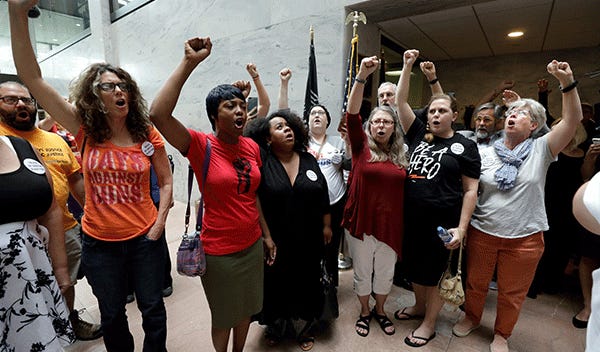The Age of Outrage

Fellas, this is mainly for you, but ladies, it will benefit you as well. But before you get your panties bunched up, take a breath and un-grit your teeth.
There’s no denying it: we live in an age where being offended has practically become a national pastime. From social media outrage to boycotts over a misplaced joke, it feels like everyone is walking on eggshells. But here’s the real question: are we too comfortable with being offended?
It’s worth exploring whether this hair-trigger sensitivity is helping us evolve as a society or if we’re losing something valuable in the process — like the ability to laugh at ourselves, have tough conversations, and grow from them.
Are we too Sensitive?
Let’s face it: outrage is easy. It takes a few seconds to fire off an angry tweet or cancel someone with a hashtag. But being offended today isn’t just about being upset — it’s about broadcasting it for all to see.

Consider this:
- Social media algorithms thrive on controversy. The more heated the conversation, the more engagement it gets.
- Outrage often garners sympathy and validation. Nothing feels more empowering than people rallying to your cause with comments and retweets.
The problem? Constant offense can make us reactive instead of reflective. Instead of listening or understanding, we rush to take sides, escalating the drama instead of resolving it.
When Did Disagreement Become Taboo?
There was a time when debates were seen as a way to sharpen your ideas and broaden your perspective. Now, disagreeing can land you in hot water.
Why This Shift?
- Polarization:
Everything feels like it’s us vs. them. If you don’t agree 100%, you’re labeled as “the enemy.” - Fear of Backlash:
Many people are afraid to share their opinions because they’ve seen others get dogpiled online for saying the “wrong” thing. - Echo Chambers:
Algorithms tailor our feeds to show us what we already believe, so opposing views feel more jarring when they pop up.
Instead of engaging in meaningful discussions, we’ve started silencing people — or they silence themselves.
Is Offense Always a Bad Thing?
Now, let’s be clear: being offended isn’t inherently negative. Sometimes, it’s necessary. Think about the civil rights movement, women’s suffrage, or LGBTQ+ advocacy. Offense can spark change when it’s directed at genuine injustice. But here’s the catch. There’s a difference between standing up against systemic oppression and throwing a tantrum over someone’s differing perspective. Not every disagreement is a personal attack.

And not every “offensive” statement deserves public outrage. When we overreact to minor infractions, we dilute the power of offense for issues that truly matter.
Are We Losing Resilience?
One unintended consequence of our collective sensitivity is that we might be losing resilience — the ability to bounce back, adapt, and grow stronger. It’s getting to the point where if things don’t go perfectly for some people, their day, week or even month is ruined — mental /emotional midgetry at its finest.
Here’s What Happens When We Avoid Discomfort:
- Stunted Growth:
Growth happens when we face challenges. Avoiding uncomfortable conversations means missing out on opportunities to learn and expand our worldview. - Weaker Relationships:
Friendships and partnerships thrive on honest dialogue. Constantly tiptoeing around potential offense creates shallow connections. - Comedy Under Fire:
Humor thrives on pushing boundaries. When comedians are afraid to tackle certain topics, we lose the ability to laugh at life’s absurdities.
The Role of Social Media
Social media has turned everyone into a content creator — and a critic. Platforms like Twitter and Instagram amplify outrage by rewarding it with likes, shares, and views.
Here’s how it plays out:
- A single “offensive” comment can go viral, sparking a cascade of reactions.
- Nuance often gets lost in the race for hot takes and retweets.
- Public shaming becomes entertainment, and everyone joins the pile-on.
The result? A culture where fear of being misunderstood outweighs the freedom to express oneself. A mind-numbing, boring existence.
How Can We Find Balance?
It’s time to ask ourselves: How do we balance the need for respect with the freedom to speak openly?
3 Steps to a Healthier Approach:
- Pause Before Reacting:
Not every comment requires a rebuttal. Sometimes, it’s okay to scroll past something you disagree with. - Assume Good Intentions:
Most people aren’t out to hurt others. Approach conversations with curiosity rather than hostility. - Pick Your Battles:
Save your energy for causes that truly matter. Outrage fatigue is real, and spreading yourself thin dilutes your impact.
In a nutshell, don’t be an overly sensitive, serial protester actively searching for a cause. Also referred to as a “Karen”.
Are We Overcorrecting?
One reason people are so comfortable being offended is that we’ve overcorrected from past insensitivity. In decades prior, people got away with saying and doing hurtful things without consequence. Society’s shift toward accountability is a good thing — but we may have swung too far in the other direction.
When every slight misstep becomes a public scandal, we create a culture of fear and inauthenticity. People stop being real because they’re terrified of saying the wrong thing.
Conclusion: The Offense Epidemic
Are we too comfortable with being offended? Maybe. While it’s important to call out injustice and advocate for respect, we also need to leave room for nuance, humor, and growth.
Not every disagreement is a battle. Not every opinion is a threat. Sometimes, the best response to offense is to reflect, respond thoughtfully, or simply let it go.
So, next time you feel the urge to react, take a breath. Ask yourself: Is this worth my energy? Or am I just comfortable being offended?
Let’s get comfortable with something else: resilience, curiosity, and the art of meaningful conversation.





